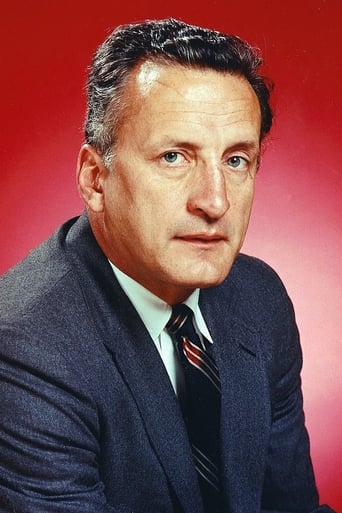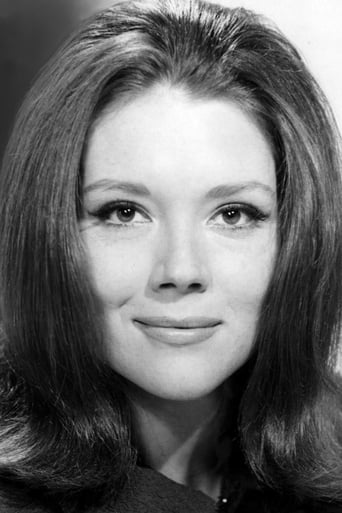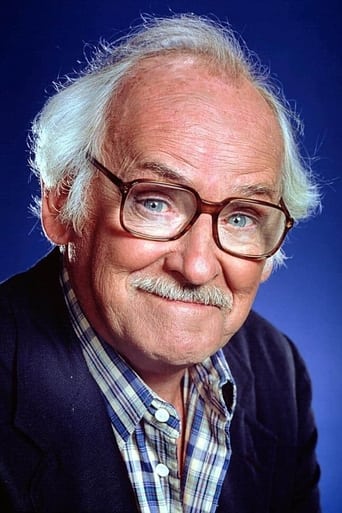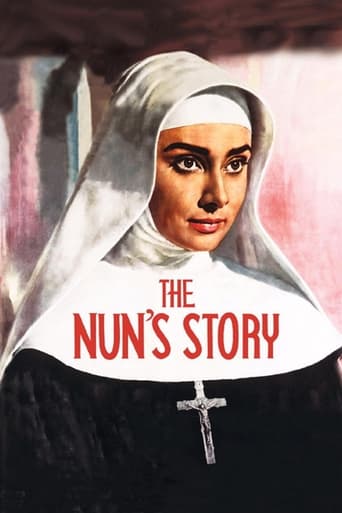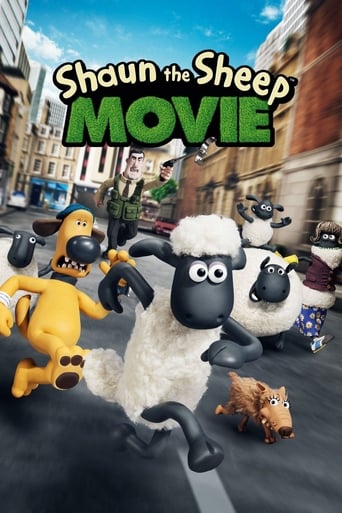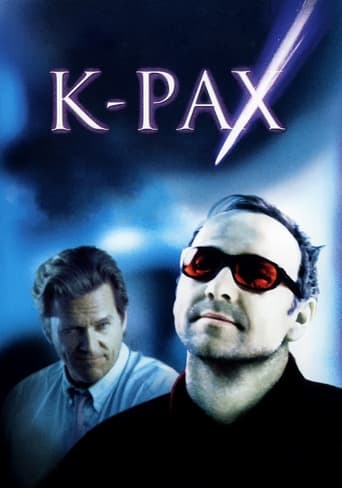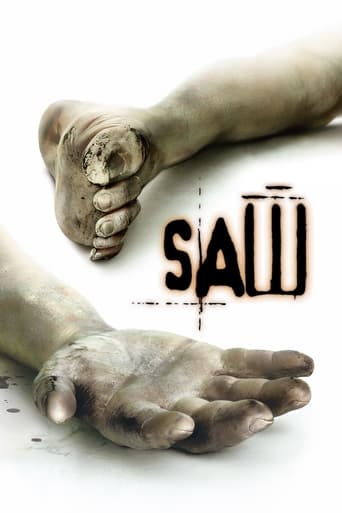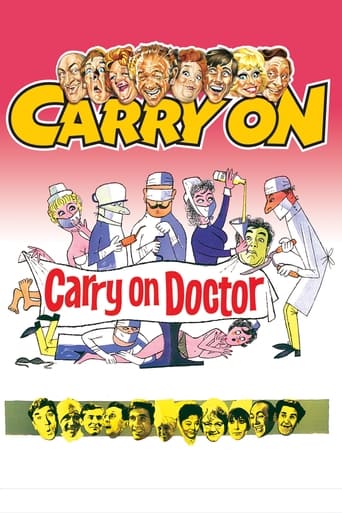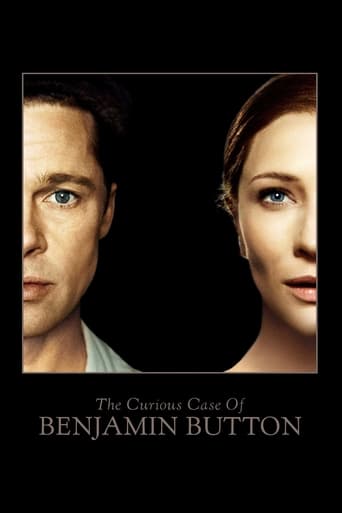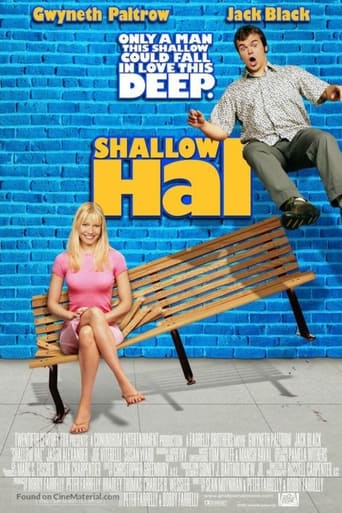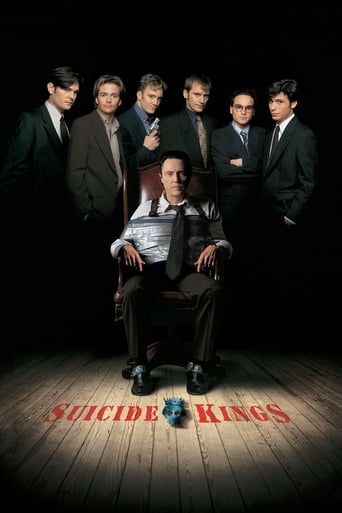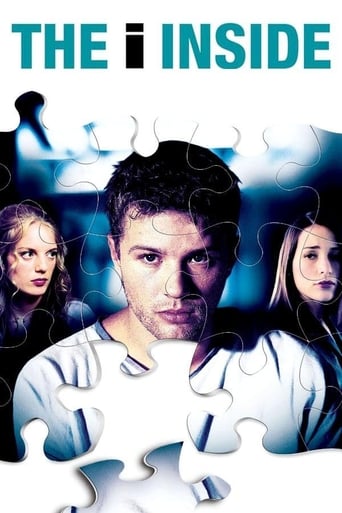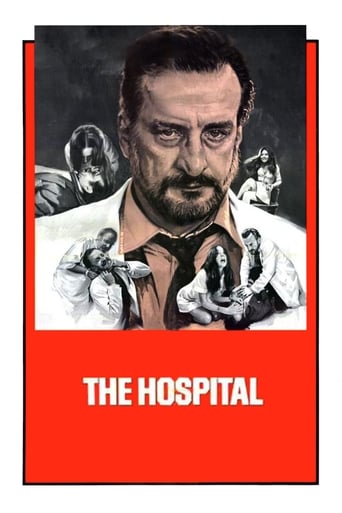
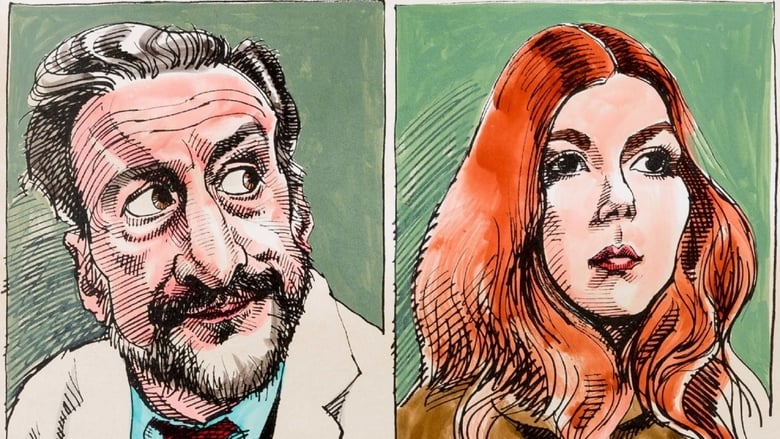
The Hospital (1971)
Dr. Bock, the chief of medicine at a Manhattan hospital, is suicidal after the collapse of his personal life. When an intern is found dead in a hospital bed, it appears to Bock to be a case of unforgivable malpractice. Hours later, another doctor, who happens to be responsible for another case of malpractice, is found dead. Despondent, Bock finds himself drawn to Barbara, the daughter of a comatose missionary.
Watch Trailer
Cast


Similar titles
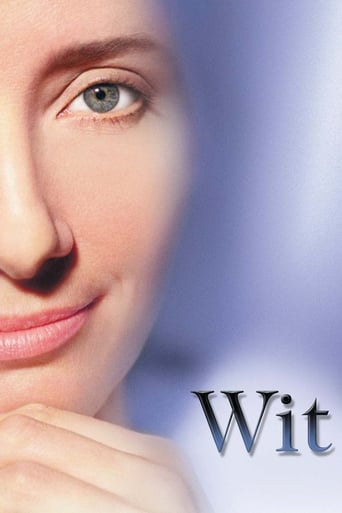
Reviews
Doctor George C. Scott is having a mid-life crisis, questioning his life, his relationships and his general purpose, while being burnt out from his job, when he is thrust into a bizarre mystery of corpses in his hospital. The staff is being killed or is mysteriously dying one by one. It begins when a hospital bed is free because a patient dies ("Guernsey,") and now a young doctor, thinking he's Don Juan, uses the bed for a rendezvous only to be found dead the next morning. Diana Rigg costars as an Indian whose father has recently been admitted and she instantly forms an attraction for George and begins to tell him her life story: her use of drugs while adjusting to life, her mores, her lack of inhibitions. TMI, right! The acting in this film is excellent and is spot on. And, it's not only Scott and Rigg, but the staff. In the beginning, they keep questioning each other over "What did you just say?" trying to comprehend this unbelievable news that the young doctor is dead. The nurses were hilarious. Much is said about Paddy Chayefsky's "Network" and how great it is, but this dark satire on the health system is perversely perfect. Paddy deservedly won an Oscar for this script, and Barnard Hughes has a brief but pivotal role. We only hope that our own hospital is nothing like this. For an evening of good entertainment for those whose stomach can take it, watch Paddy Chayefsky's "The Hospital" - just not before your own surgery!!!!
This a fantastic movie, although I can't figure out why it's labeled as a "horror/something" story. There is absolutely nothing of a horror movie in "The Hospital"....Yes, some patients die, as mentioned in the storyline, and it has many elements of drama, but overall this is a dark, satirical comedy that is never scary but might have you rolling on the floor laughing your head off; in fact some scenes and dialogs I would describe as the funniest ever put in a movie (assuming you appreciate dark humor).The acting, vital in such a movie, is top notch, and the all-star cast does justice to one of the best, most intelligent Hollywood scripts ever written. It's quirky, darkly funny, thought-provoking, and it questions the very basis of our society, and our life, without ever being cheesy or preachy. All the characters, for better or for worse, feel extremely real, and yet they tread the edges of surreal, tragicomic events that, in turn, can take them (and us, the audience) to emotional places as diverse as hilarity, despair, and even optimism.I saw it for the first time many years ago, just bumped into it while channel-surfing, and couldn't turn it off until the end credits came up on the screen. I watched it again recently and found it just as powerful, funny and mesmerizing as that first viewing. If you love great cinema, and a drama with ideas instead of a transparent agenda, don't miss out on "The Hospital", it's a masterpiece.
I've been having a growing interest in George Scott. He is something of a unique kind within film actors. He never embraced the Method revolution as deeply as so many of the American actors of his generation, but also he is not old-fashioned. His acting, even when he is closer to go over the top is always fluid, and his films, if dated on any respect, always work still today, because of him (at least). He is theatrical in that words, and not anything else, command his performance. His phrasing bends the text and delivers us all the nuances he requires for it. He carries a film. Here we have his talents summed up to a clever script, and a wonderful use of space, in a cinematic way. What we have is a goofy detective story, mapped into the troubled life of an undesignated detective, mapped into one single well explored set. On top of everything, we have native American mysticism, thrown under the disguise of an interesting screen woman. So this is an accidental police story. Some murders happen, few clues are given. We follow these murders from a clueless point of view which, nevertheless, does not coincide with the point of view of the tormented doctor, who will partially act as a detective, to the point of bending the outcome of the story. So the curious narrative trick here is how the narrators eye is anchored on the space of the hospital, even though the story has to do with how the doctor deals with the facts. We watch the doctor's version of the world from an point of view external to him, this is interesting. **spoilers** Than a woman gets into the story, a sexy mystic beast, who deviates us from the back story, only to the point in which we learn she has (unaware) the key to the enigma. And than we have the story of the burnt out doctor, suicidal, hopeless. This 3 threads start as separate lines that we follow, bound together by the action of the doctor. The beauty of the script i show in the end these threads have one single conclusion: the murder is the woman's father, and the woman is the healer for the doctors depression. So he protects the insane murder and intents to run away with the woman. Oh, but we have the hospital. Now we know that was the ultimate character, all the time. The doctor understands this, so he can't leave it. His existence as a character depends on the existence of that hospital, as a space. It's that space that bends everything that happens inside, as the character of an horror film which you never see even of you know he's there.Notice how this is underlined by the protesters. All the time they are outside, wanting to get in, and as the film ends and the story unfolds, it's their invasion of the hospital that makes us aware of how much we are into that character now. It's the hospital, all the way.My opinion: 4/5
"The Hospital" is a 1971 satire written by Paddy Chayefsky, and while it contains a slew of original ideas and creative plot lines, it never gels or forms one cohesive story or film.It's easy to see the similarities between this movie and Chayefsky's "Network:" he clearly did extensive research on his subjects, creating bold characters that embodied the best and worst of their respective industry, and while his satirical plot lines were mostly reality-based, he had no problem exaggerating or taking a fantastic turn in order to drive his points home or resolve his characters' stories. In "Network," this formula succeeds brilliantly, as Peter Finch's madman-prophet is just the sort of phenomenon that might be embraced by the viewing public and the TV industry. (There's even a "Network" reference as George C. Scott opens the window and shouts out to the world outside.)In "Hospital" the plot lines are just too bizarre. An Indian doing a healing dance over a comatose man's bed... a serial killer who murders doctors because it's "God's will"... an impotent hospital administrator who is "cured" by raping a hippie chick... ethnic victims who protest and storm the hospital... it's too much. Had Chayefsky streamlined his story and condensed his list of targets the movie might have been more organic, more believable. As it is we're given so many unrealistic scenes in a row that there's no foothold, no chance to catch your breath and ground the proceedings.George C. Scott is great as the tormented, impotent doctor, but his dialogue becomes so heavy and deliberate he loses all credibility. Once the sultry Diana Rigg appears, (who owed us at least one topless shot) the movie forgets it's a satire of the medical industry and becomes a cockeyed, unconvincing love story with no clear motivations for any of the characters. Rigg's father is this film's madman-prophet, but he loses all credibility when we learn he's killed multiple people- murderers lose the right to make a point, even in the movies.This is a script that needed a rewrite from a neutral party, and a reminder of why the director- and not the screenwriter- should be the ultimate author of a film. Chayefsky is so busy forcing dialogue and back-story into Scott & Rigg's mouth that he never allows the characters to Breathe, or to demonstrate who they are not by what they Say but by what they Do, which is a key to good screen writing and filmmaking. To see Paddy Chayefsky at his most brilliant, watch "Network." To see him wielding too much power and missing his own point, watch "The Hospital." It might have been brilliant.GRADE: C+


